15 have author last names that start with H have author last names that start with H

What makes a people living in a mere “geographical expression” a nation? From the French Revolution onwards, the word “nation” came to denote a people who wish to be collectively free. But free from what—colonial rule and inequality? Or religious and cultural diversity?
In this timely and succinct essay, Irfan Habib charts India’s struggle to consolidate a nationalist identity, to identify what it sought to be free from. Even as the colonial regime denied the very possibility of nationalism in the subcontinent, opposition to British rule fomented just such a sentiment. But resistance against colonial exploitation alone could not unify the Indian people. Internal inequalities—caste, poverty, religious bigotry—remained (and still remain) to be tackled.
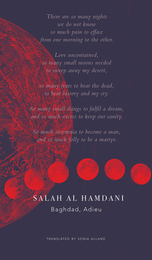
This landmark collection gathers thirty-five years of his writings, from his first volume in Arabic, Memory of Embers, to his latest collection, written originally in French, For You I Dream. It offers English-language readers their first substantial overview of Al Hamdani’s work, fired by the fight against injustice and shot through with longing for the home to which he can never return.
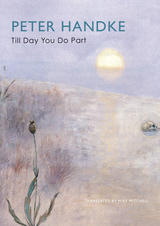
Described as an answer to or at least an echo of Samuel Beckett’s Krapp’s Last Tape?, Till Day You Do Part Or A Question of Light, by esteemed Austrian playwright and novelist Peter Handke, is a monologue delivered by the “she” in Beckett’s play. This unnamed female similarly recalls other significant women protagonists in Handke’s own work such as The Left-handed Woman. Handke prefaces the monologue in Till Day You Do PartOr a Question of Light with a description of two stone figures. While the male figure remains “as dead and gone as anyone can,” the female bursts into life, and her monologue gradually focuses on Krapp’s use of pauses and language to dominate the other characters in the Beckett play. Ultimately, however, her complaints and critique of Krapp become a declaration of her love for Krapp or at least an affirmation of their attachment, as the two of them are ultimately bound together, perhaps even inseparable.
Till Day You Do Part Or a Question of Light is Handke at his best, evidencing the great skill, psychological acumen, and vision for which his work has been celebrated.
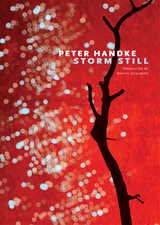
In Storm Still, Handke’s most recent work, he returns to the land of his birth, the Austrian province of Carinthia. There on the Jaunfeld, the plain at the center of Austria’s Slovenian settlement, the dead and the living of a family meet and talk. Composed as a series of monologues, Storm Still chronicles both the battle of the Slovene minority against Nazism and their love of the land. Presenting a panorama that extends back to the author’s bitter roots in the region, Storm Still blends penetrating prose and poetic drama to explore Handke’s personal history, taking up themes from his earlier books and revisiting some of their characters. In this book, the times of conflict and peace, war and prewar, and even the seasons themselves shift and overlap. And the fate of an orchard comes to stand for the fate of a people.
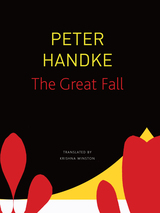
The latest work by Peter Handke, one of our greatest living writers, chronicles a day in life of an aging actor as he makes his way on foot from the outskirts of a great metropolis into its center. He is scheduled to receive a prestigious award that evening from the country’s president, and the following day he is supposed to start shooting for a film—perhaps his last—in which he plays a man who runs amok. While passing through a forest, he encounters the outcasts of the society—homeless people and migrants—but he keeps trudging along, traversing a suburb whose inhabitants are locked in petty but mortal conflicts, crossing a seemingly unbridgeable superhighway, and wandering into an abandoned railyard, where police, unused to pedestrians, detain him briefly on suspicion of terrorism.
Things don’t improve when he reaches the heart of the city. There he can’t help but see the alienation characteristic of its residents and the omnipresent malign influence of electronic technology. What, then, is the “Great Fall”? What is this heart-wrenching, humorous, distinctively attentive narrative trying to tell us? As usual, Peter Handke, deeply introspective and powerfully critical of the world around him, leaves it to the reader to figure out.
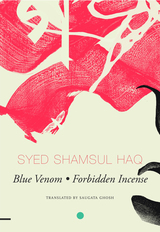
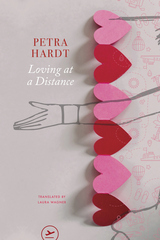
Traveling from the Silicon Valley through the college towns of Berkeley and Stanford, Loving at a Distance is a touching memoir that describes a European bibliophile’s experiences in the high-tech sectors of California. Living on two different continents is always a big challenge for a family. In a pandemic, however, that challenge becomes almost insurmountable.
An aging German grandmother, Petra Hardt finds that her regular journeys across the Atlantic to visit her children and grandchildren in California aren’t really helping her understand the Californian way of life and work. With self-irony and laconism, she details the connections and confusions between generations, exploring how different lifestyles and attitudes have affected her relationships. Her relatable experience of trying to bond with loved ones across distance is one shared by millions of other families around the world.
The personal impressions and observations are complemented by flashbacks to the author’s career in the international book trade. Why were the business trips to Beijing, Beirut, and Kolkata so easy to manage, while living in California is so hard? Showing us the world through Hardt’s grandmotherly eyes, Loving at a Distance is a tender and lively memoir about different ways of living and working in the age of globalism.
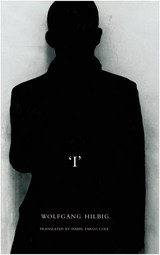
First published in Germany in 1993 and hailed as an instant classic, “I” is a black comedy about state power and the seductions of surveillance. Its penetrating vision seems especially relevant today in our world of cameras on every train, bus, and corner. This is an engrossing read, available now for the first time in English.
“[Hilbig writes as] Edgar Allan Poe could have written if he had been born in Communist East Germany.”—Los Angeles Review of Books
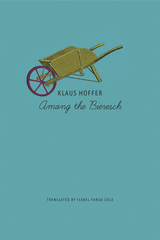
Among the Bieresch is Hans’s story—one of bizarre customs, tangled relationships, and the struggle between two mystical sects. The novel, translated by Isabel Fargo Cole, is a German cult favorite and a masterwork of culture shock fiction that revels in exploring oppressive cultural baggage and assimilation. Readers will encounter here an amalgam drawing from Kafka, Borges, and Beckett, among others, combining to make Klaus Hoffer’s novel a world utterly its own.
“One of the few works that will loom from the dust of this century one day.”—Urs Widmer

When Valentijn must undergo a mastectomy because of a gene defect, he makes the decision not to have implants and adopts an in-between gender identity that feels more natural. He shaves his head and discards his wardrobe of women’s clothes, even the perfect dress his mother was so fond of. But all of this causes friction: not only are Valentijn’s doctors stumped, but friends, family, and lovers too. His trans ex helps him feel more comfortable in his new guise—not a girl, not a boy, but an antiboy—while his boyfriend draws away from the relationship. Encircled by grief and loss, Valentijn searches for the ultimate freedom to be allowed to be himself and tries to rebuild the relationships with those around him.
A refined, poetic autobiographical essay about adopting a new and truer identity, Antiboy is poignant without ever being sentimental. Valentijn finds new emotional depth and complexity in his personal relationships, providing readers with a rich and empathetic reading experience. Antiboy goes beyond the author’s own journey, becoming a nuanced exploration of human connections amid transformation.
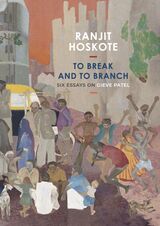
To Break and to Branch is a collection of six essays on the artist Gieve Patel (1940–2023), written by poet, cultural theorist, and curator Ranjit Hoskote over nearly two decades, gathered together for the first time and accompanied by over fifty illustrations of Patel's paintings. In an introductory essay written especially for this edition, Hoskote looks back over the long friendship he shared with Patel, contextualizing it within the vibrant artistic milieu that was once special to Bombay, their home city: a milieu premised on a mutual curiosity that brought the arts together, hospitable to poetry, painting, theater, cinema, music, and architecture.
Embodying this spirit, Hoskote engages with Patel’s evolving oeuvre as a painter and his experiments with sculpture, while connecting them to his investments in poetry, theater, and his growing philosophical awareness of the more-than-human. Hoskote’s writings trace both the constant preoccupations and the changing interests that gave Patel’s art its distinctive character and reflect on the aesthetic, philosophical, and political dimensions of Patel’s gradual movement from a human-centric understanding of the world to a more holistic view as generated and sustained by interrelationships across orders of being.
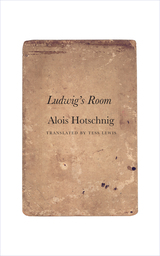
As the story unfolds, it becomes clear that the entire village adheres to an old and widely understood agreement not to expose the many members in the community who had been involved with a nearby prison camp during World War II. This knowledge wraps the entire community—those involved, and those who know of the involvement—in inescapable guilt for generations. Translated from the original German by Tess Lewis, Ludwig’s Room is a story of love, betrayal, honor, and cowardice, as well as the burden of history and the moral demands of the present.
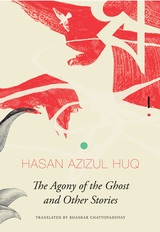
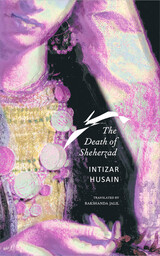
The fifteen stories in The Death of Sheherzad ably represent Intizar Husain’s oeuvre, defying narrative tradition and exploring the past, specifically the Partition of India, as a means of unraveling the present. He imaginatively revisits a syncretic, tolerant, pluralistic past to analyze why the tide turned so irreversibly. Questioning everything—faith, violence, society—Husain probes the horrors of Partition in a manner as oblique as it is trenchant. Imbued with dark wit and literary brilliance, these stories at once shock, agitate, and entertain.
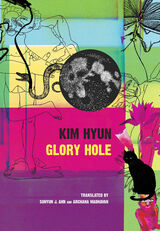
Kim Hyun’s Glory Hole is the first Korean queer poetry collection. Featuring gay teens, elders, cats, caterpillars, robots, and other unexpected characters, Kim’s fifty-one eccentric poems trace themes of love, sexual desire, abandonment, destitution, and death. In recounting the splendid yet tragic journeys of his speakers, Kim defies meaningful sense-making. His poems are a mishmash of dystopian sci-fi and pornography, storytelling and poetry, fictive references, and real figures. They are not embellished with elegant imagery; in fact, they are antithetical to it, opting instead for incoherent tense, unidiomatic expressions, and never-ending puns. After all, like LGBTQ+ people in many cultures, Korean queers live in this site of violence. Bewilderment, deliberately, is Kim Hyun’s form. Glory Hole invites readers into a very queer world.
READERS
Browse our collection.
PUBLISHERS
See BiblioVault's publisher services.
STUDENT SERVICES
Files for college accessibility offices.
UChicago Accessibility Resources
home | accessibility | search | about | contact us
BiblioVault ® 2001 - 2024
The University of Chicago Press









